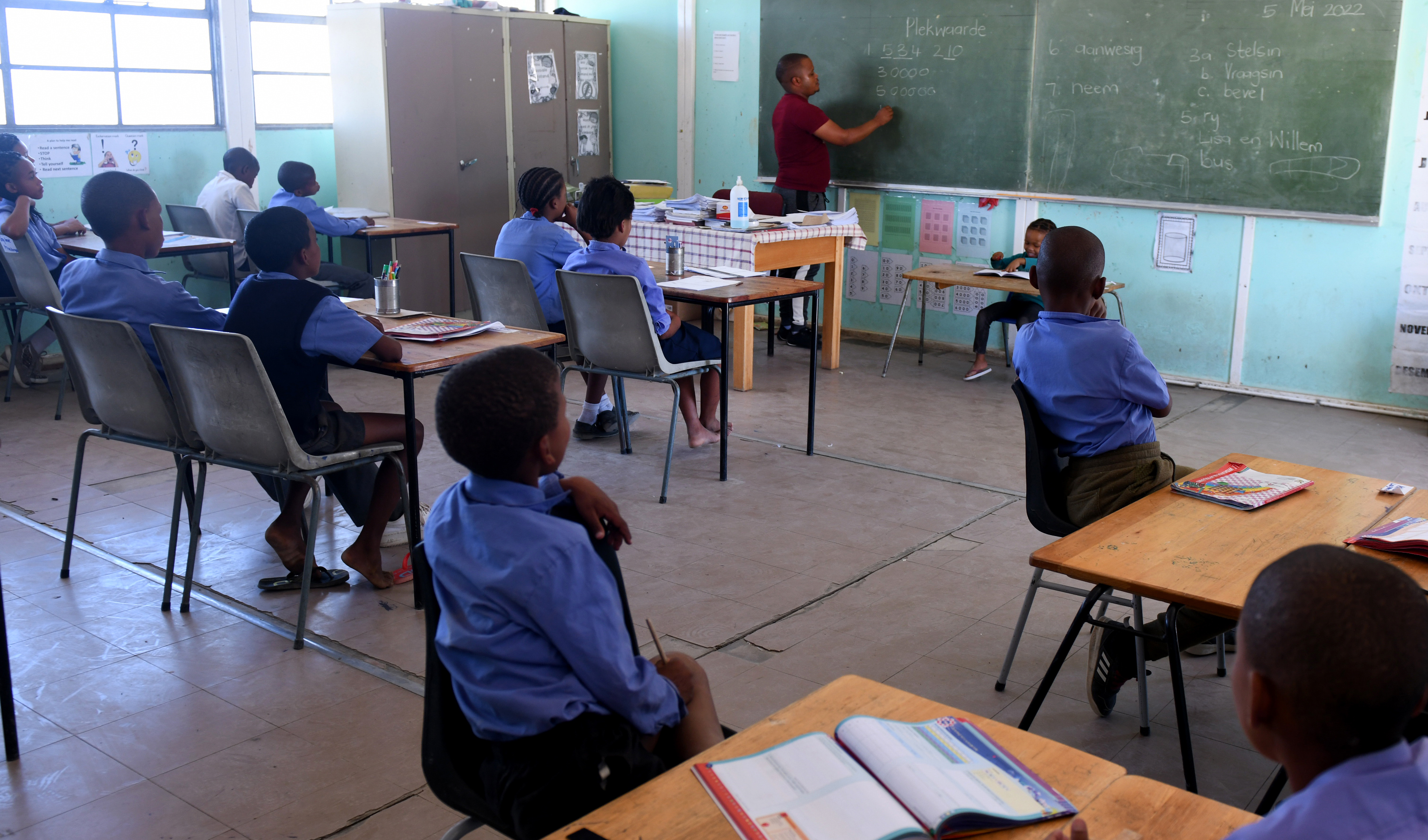Education experts have welcomed the education portion of the Budget, in which Finance Minister Enoch Godongwana has provided some relief for teachers after allocating an extra R19.1-billion to add about 11,000 teachers.
An additional R10-billion has been allocated for Early Childhood Development that will see an increase of the subsidy from R17 to R24 per day per child.
Godongwana’s 2025/26 Budget expenditure on education is as follows:
- R55.4-billion for the National Student Financial Aid Scheme (NSFAS);
- R48.4-billion for university transfers;
- R27.9-billion for the skills development levy;
- R21.6-billion for education administration; and
- R14.2-billion for technical and vocational education and training.
Read more: Education sector gets a nod with more than R500bn
Education experts told Daily Maverick that they welcome this Budget — it addressed the need to keep teachers in the classroom after widespread protests in 2024 over teacher budget cuts.
Read more: Call to action against Western Cape teacher job cuts, while MEC Maynier says situation is ‘critical’
Matshidiso Lencoasa, a budget analyst at public interest law centre SECTION27, said the budget was generally positive for the education sector.
“This budget is definitely a step forward in many ways for education, but it is quite a step back in terms of the impact that it has on everyday people because of VAT. But what is positive is that there has been increased investment towards teachers.
“This will definitely not go all the way in terms of absorbing more teachers into the public schools, but it is a better move than the previous years, which have been characterised by reducing investments in teachers,” Lencoasa said.
Professor Mary Metcalfe of the National Planning Commission welcomed the education budget. She said the 11,000 posts should be reflected in provincial budgets.
“These additional posts should be used to reduce class sizes – particularly in the foundation phase (grades R-3), and the intermediate phase (grades 4-6) as large class sizes in these phases were a constraint to achieving strong foundations – which contributed to inefficiency in the system.”
Metcalfe said “the increase in ECD subsidies is long overdue – it has been R17 per child. This is a pro-poor intervention as it is the most vulnerable children who are prioritised in the allocation of these subsidies to community-driven early childhood education centres. The subsidies supplement community contributions which cover the costs of food, resources and the payments to practitioners.”
Early childhood education is focused on the critical developmental milestones, skills and concepts that children attain during this period of their lives.
Basil Manuel, executive director of the National Professional Teachers’ Organisation of South Africa (Naptosa), said that while the R19.1-billion allocation was positive, teachers needed to be sustained and more money needed to be allocated to this.
Higher education
The Department of Higher Education has been faced with many challenges, particularly in the accommodation sector, and with fruitless expenditure. Early this year, student protests were held at various institutions calling for more students to be accommodated.
Read more: Protests continue at UCT and Wits as students unite against housing and financial exclusion challenges
Daily Maverick spoke to Higher Education and Training Director-General Nkosinathi Sishi, who said that the funding to be allocated to the department would largely focus on accommodation matters.
“There are certain things that are really important to us like student accommodation for all undergraduates. To us this is the biggest priority. I’m stressing undergraduates because I’ve been to institutions where I’ve seen undergraduates applying to those institutions, but they cannot be accommodated and it leads to all sorts of social ills that they are confronted with.
“So we would like to believe that in the allocation to education, the priority is to support institutions to cover their budgets to increase spaces at the basic minimum,” said Sishi.
Accountability
On the better handling of allocated funds to provinces to improve the education sector, Lencoasa said there should be consequences for the mismanagement of funds.
“We’ve long called for consequence management because there are always reports that this money was underspent, but then the story just ends there. We would like to know why money is underspent, who is the culprit behind that, and what we can do in the future to ensure that that doesn’t happen.
“We really need to build the capacity of poor-performing provinces to ensure that people who work in government know what they’re doing when they’re procuring infrastructure projects or doing public service,” said Lencoasa. DM




